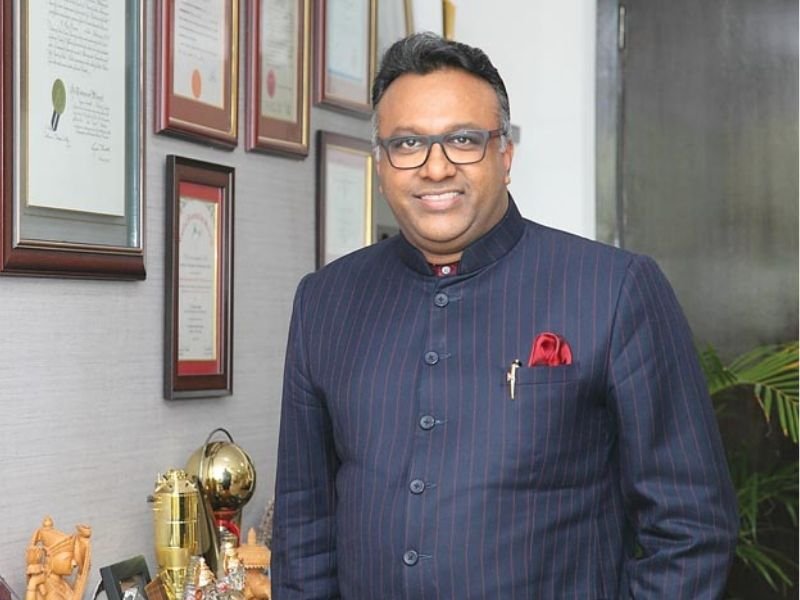50 Leaders who can revive Indian education – C. Raj Kumar
 C. Raj Kumar
C. Raj Kumar
Vice Chancellor, O.P. Jindal Global University
An alumnus of Madras, Delhi, Oxford and Harvard universities, Dr. C. Raj Kumar is founding vice chancellor of the O.P. Jindal Global University, Sonipat, Haryana (JGU, estb.2009). JGU is ranked among India’s Top 5 private universities by EducationWorld.
The Covid-19 crisis has majorly disrupted the education system. How has JGU responded to this challenge?
This is an unprecedented situation that all education institutions are facing worldwide. As the crisis drew on, we realised we had to find robust alternative strategies to address emerging developments. We immediately set to work to move the entire teaching delivery mechanism of all our 5,100 students in the nine constituent schools of JGU, to the online learning mode. We also adapted the design and delivery of the university’s assessments and exams to suit the new online mode.
Simultaneously, we had to rapidly find ways to care for our out-of-state and international students who could not find a safe passage home, or were unable to return to their own countries.
What are the major challenges confronting higher education in the new Covid-19 era?
Working from home, remote learning is set to become the new normal, in stark contrast to the ways in which universities in particular have traditionally functioned. In the case of a fully residential university such as JGU, the contrast is even starker. In many ways, the crisis has provided university managements an opportunity to test the resilience of technology solutions and systems such as healthcare, public finance, transport, supply chains and policing, among other issues.
New ways of remote work and social interaction have reinforced our existing institutional and academic focus — to cultivate young minds to acknowledge and embrace the richness and complexity of new social, economic, political and technology paradigm shifts. In JGU, we have consistently emphasised adaptive orientation in the organisational and academic spheres. This means that notions of uncertainty, complexity and fragility are recognised as core concepts around which our pedagogical practices are built. Because the fluid and dynamic ways in which natural disasters, man-made emergencies and other complex interactive events occur in the world, higher education institutions have to ideate responses that are flexible, and embrace the diversity of expectations in complex contexts. This is an opportunity for us to reinforce existing pedagogical practices and also draw lessons from this crisis.
What are your Top 3 proposals for reviving and reforming higher education in India?
As a result of this crisis, one of the most important and critical changes as I see it, is to prepare our students to cope with new living and work environments that are likely to become normative. In many ways, this crisis exemplifies the type of challenges our students are likely to encounter in their careers. As future leaders, our graduates will be expected to adapt imaginatively and creatively to new and unexpected situations in environments defined by uncertainty, ambiguity and complexity. Educators and higher education leaders need to develop young minds to think innovatively, and develop broader perspectives. At JGU, these are the basic foundations of our pedagogical practices.
What are your future plans for JGU?
As we navigate the current Covid pandemic crisis, we are actively learning to strengthen areas where we had limited experience previously, especially digitisation and online education. We recently established a new Office of Digital Learning & Online Education at JGU and we are committed to strengthening this expertise as we move ahead and beyond this crisis. The ultimate objective is to support JGU’s outstanding faculty in the creation of high quality online study programmes in collaboration with leading digital platforms, universities and industry partners. We intend to undertake several such initiatives as we move forward and recover from the Covid-19 pandemic.
Also read: Leaders who can revive Indian education: Ranjan Pai
















Add comment